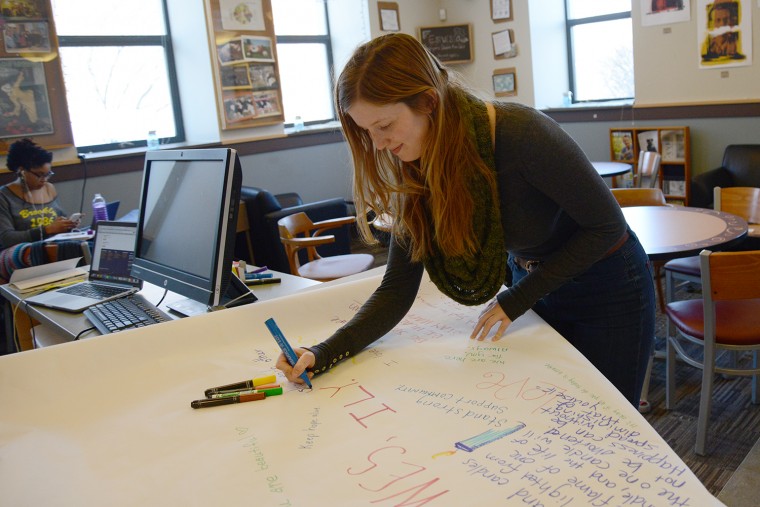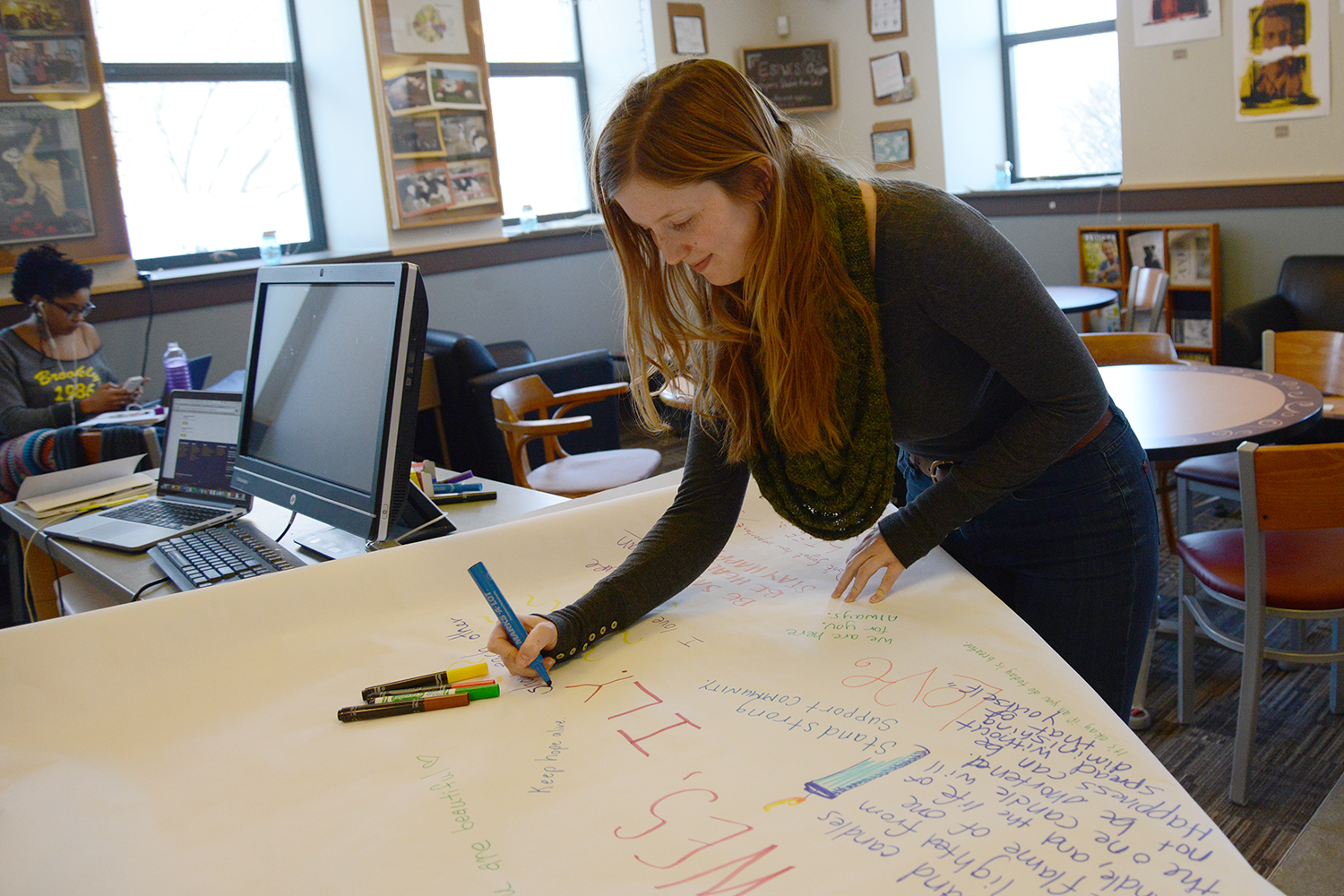Wesleyan Students Hospitalized


It is Feb. 24, 10:20 a.m., and Mike Whaley, vice president for student affairs, steps out of a meeting in the President’s Office to take a phone call. He returns two minutes later, takes his seat, and in an emotion-laden voice tells the group that a student whose life was endangered by poisoning from a variant of the drug Molly (MDMA) was improving.
It was a moment so many had been waiting for. As of Tuesday evening, eight of the 10 Wesleyan students hospitalized Sunday had been discharged. Two, however, remained hospitalized.
There was more news Tuesday night: four Wesleyan students had been arrested by Middletown police as a result of an investigation into the weekend’s events.
[Update] All students were discharged from hospitals and a fifth student was subsequently arrested.
Here’s a brief recap of what happened:
Ten Wesleyan students and two visitors were taken to area hospitals on Sunday, Feb. 22, displaying symptoms consistent with the use of the drug Molly.
University officials informed the campus community Sunday morning that three students had been transported to the hospital, one in critical condition, but the number affected continued to grow. The scope of the incident was apparent by the presence of numerous emergency vehicles on campus throughout most of the day. In a mid-day urgent message, Whaley asked students to check on their friends immediately and report anyone who required medical attention.
In an update on Monday, President Michael S. Roth issued a strong appeal to students to avoid the risk of potentially lethal exposure to drugs such as Molly. “I ask all students,” he said, “Please, please stay away from illegal substances the use of which can put you in extreme danger. One mistake can change your life forever. If you have friends who are thinking about trying these kinds of drugs, remind them of the dangers.”
Roth noted that Resident Advisors, Counseling and Psychological Services, and class deans have all been reaching out to students.
“And please keep those still hospitalized in your hearts and minds,” he added. “Please join me in supporting their recovery with your prayers, thoughts, and friendship. Take care of yourselves. And let’s take care of each other.”
The multiple hospitalizations quickly became a national news story, and television crews were much in evidence next to the campus.
Support for the affected students from parents and alumni came pouring in, as well as more than a few questions about university programs and about students’ accountability for their choices.

On campus, faculty have been talking with their students, and students talking with one another about how to make safe choices and to help one’s friends. On Feb. 24, Counseling and Psychological Services (CAPS), together with the student group Active Minds at Wes, conducted an open healing space in Espwesso for those who wanted to come together and write messages of support for the hospitalized students.
The drug “Molly” is widespread—and becoming increasingly more prevalent—on college campuses nationwide.
The Hartford Courant reported Dr. Mark Neavyn, chief of toxicology at Hartford Hospital, as saying that Molly is “a designer amphetamine” that causes euphoric symptoms and hallucinations, “but in certain situations when the potency is higher or the drug is actually not [Ecstasy or Molly] at all and it’s something else, we can see toxicity like high blood pressure, high heart rate, high body temperature that can progress all the way to seizures and coma and multi-system failure.”
The arrests Tuesday night of four Wesleyan students resulted from an investigation into the events of the weekend. The university immediately suspended the students pending a formal hearing. Reacting to the arrests in a statement, Roth said: “We are a community that values freedom. None of us want to see arrests on our campus, but even less do we want to see ambulances rushing from our residences with students whose lives are in danger.”
Wesleyan offers a wide range of drug prevention, education and treatment programs and resources, and responds to drug and alcohol violations with sanctions, as appropriate. More information on policies and programs is available here.
“We take very seriously allegations concerning the distribution of dangerous drugs,” Roth said in a campus statement, “and the university will continue to cooperate with state and local officials. We will do everything we can to make our community as safe as possible.”
Wesleyan is committed to remaining, he concluded “a community that looks out for the well being of all of its members.”

